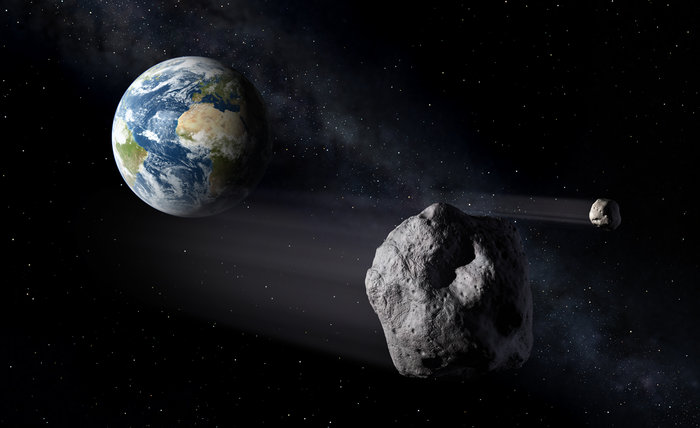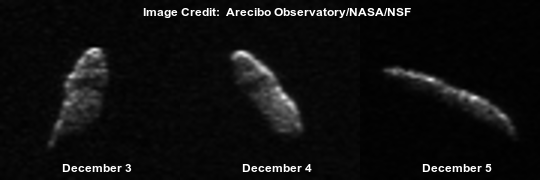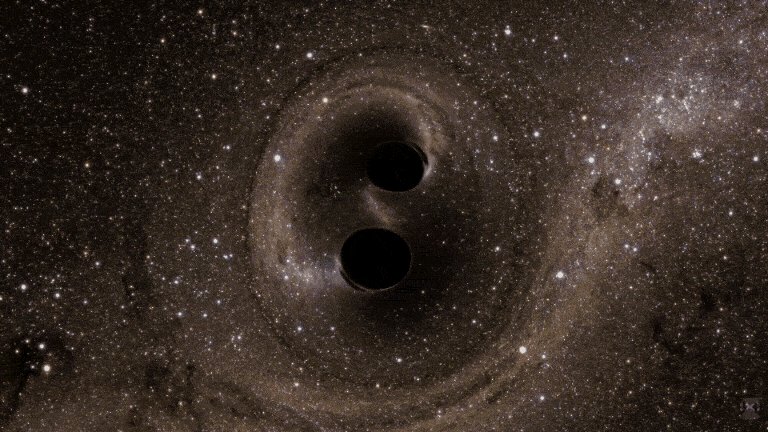Will an Asteroid Threaten Earth on Christmas Eve? Not a Chance, NASA Says

Get the world’s most fascinating discoveries delivered straight to your inbox.
You are now subscribed
Your newsletter sign-up was successful
Want to add more newsletters?

Delivered Daily
Daily Newsletter
Sign up for the latest discoveries, groundbreaking research and fascinating breakthroughs that impact you and the wider world direct to your inbox.

Once a week
Life's Little Mysteries
Feed your curiosity with an exclusive mystery every week, solved with science and delivered direct to your inbox before it's seen anywhere else.

Once a week
How It Works
Sign up to our free science & technology newsletter for your weekly fix of fascinating articles, quick quizzes, amazing images, and more

Delivered daily
Space.com Newsletter
Breaking space news, the latest updates on rocket launches, skywatching events and more!

Once a month
Watch This Space
Sign up to our monthly entertainment newsletter to keep up with all our coverage of the latest sci-fi and space movies, tv shows, games and books.

Once a week
Night Sky This Week
Discover this week's must-see night sky events, moon phases, and stunning astrophotos. Sign up for our skywatching newsletter and explore the universe with us!
Join the club
Get full access to premium articles, exclusive features and a growing list of member rewards.
There is no substance to multiple media reports that an asteroid passing by Earth on Christmas Eve (Dec. 24) will cause earthquakes on the planet, according to asteroid experts at NASA's Jet Propulsion Laboratory.
At its closest approach on Christmas Eve, asteroid 2003 SD220 will be about 6.6 million miles (10.6 million kilometers) from Earth — about 27 times farther than the moon is from Earth. The asteroid will reach its closest point at 8:08 a.m. EST (1300 p.m. GMT) and will not be visible to the naked eye.
Despite its small size (only about 1.24 miles, or 2 kilometers wide) and its vast distance from Earth, certain articles are claiming that the asteroid will pose a threat to the planet. The Jet Propulsion Laboratory's Near Earth Object (NEO) Office refuted many of these articles individually via its Twitter account, @AsteroidWatch.
"That article is filled with fake and false information. There is no danger from asteroid 2003 SD220," the NEO tweeted in response to a Twitter user who posted an article on an Italian website that claimed NASA had called the asteroid a threat to Earth.
"I wouldn't say it's in 'the news' exactly," @AsteroidWatch tweeted to someone else. "The false stories are in the tabloids. Important difference."
The claims about the asteroid's danger also sparked a blog post from noted astronomer Phil Plait, who writes the Bad Astronomy blog on Slate.
"It certainly won't hit us, and there's no way it can cause earthquakes," he said. "Mind you, asteroids this size pass us relatively often with no effects. And also note that every time one does there are a flurry of breathless, conspiratorial articles on dodgy websites and YouTube videos made by people with user names like 'antinasa illuminati shadowgovernment 1994,' which shouldn’t invoke a lot of confidence, either."
Get the world’s most fascinating discoveries delivered straight to your inbox.
Plait added that astronomers do catalog potentially hazardous asteroids and keep the records online for anyone to see.
Follow Elizabeth Howell @howellspace. Follow us @Spacedotcom, Facebook and Google+. Original article on Space.com.

Elizabeth Howell was staff reporter at Space.com between 2022 and 2024 and a regular contributor to Live Science and Space.com between 2012 and 2022. Elizabeth's reporting includes multiple exclusives with the White House, speaking several times with the International Space Station, witnessing five human spaceflight launches on two continents, flying parabolic, working inside a spacesuit, and participating in a simulated Mars mission. Her latest book, "Why Am I Taller?" (ECW Press, 2022) is co-written with astronaut Dave Williams.
 Live Science Plus
Live Science Plus












